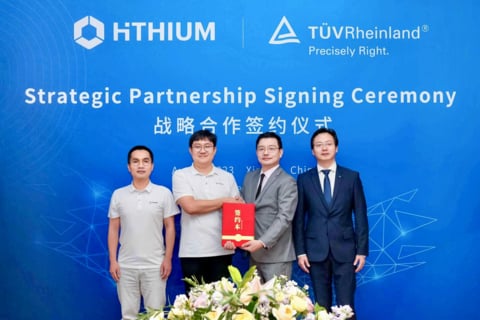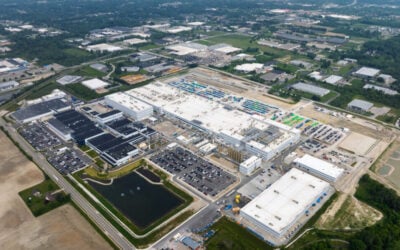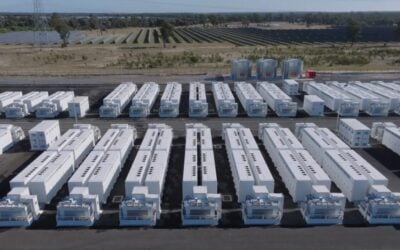
Battery manufacturer Hithium is in a “complete and comprehensive cooperation” with TÜV Rheinland for the development of its energy storage products in China.
Vertically integrated Hithium makes battery cells and modules as well as a liquid-cooled battery storage system and is one of China’s handful of lithium-ion battery manufacturers specialising in the stationary battery energy storage system (BESS) market.
Enjoy 12 months of exclusive analysis
- Regular insight and analysis of the industry’s biggest developments
- In-depth interviews with the industry’s leading figures
- Annual digital subscription to the PV Tech Power journal
- Discounts on Solar Media’s portfolio of events, in-person and virtual
Only founded in 2019, the company claimed to have already shipped 10GWh of battery capacity to date, half of that in 2022 alone. It has an annual production capacity of 45GWh but is rapidly ramping that up to 70GWh of annual output by the end of this year and 135GWh by 2025.
In September last year, Hithium debuted a new 300Ah prismatic cell to the US market at the annual RE+ trade event. The lithium iron phosphate (LFP) cell has a claimed 12,000 cycle lifetime and doesn’t experience capacity fade over the first three years of use.
In July, Hithium closed a Series C funding round worth more than US$620 million, with funding said to go towards manufacturing capacity expansion, equipment purchasing and R&D.
Last week, Hithium and TÜV Rheinland of mainland China signed their strategic partnership agreement at a meeting in Xiamen, southeast China.
The battery maker will leverage quality and safety assurances provider TÜV Rheinland’s experience and capabilities for testing and certification of large-scale energy storage systems (ESS). Meanwhile TÜV Rheinland can lean on Hithium’s experience of developing and designing products aimed at that market.
They will collaborate in areas including developing Hithium’s range of solutions, training workforce talent and will otherwise share resources and complementary advantages, the company claimed.
In December last year, a 200MW/400MWh BESS in Ningxia, China, went online equipped with Hithium’s LFP cells and claimed at the time to be the country’s largest standalone lithium-ion electrochemical energy storage project.
On that project, Hithium was supplying battery cells only, not the complete BESS solution. Another China project the company recently announced marks the first-ever deployment of Hithium’s ‘immersion’ liquid-cooled BESS technology at scale.
In a demonstration project claimed to have been delivered in just four months from the start of construction to trial operation, Hithium’s liquid-cooled BESS was supplied for a 140MWh project by China Southern Power Grid Company (CSG).
Along with State Grid Corporation of China, CSG is one of China’s two major state-owned power system enterprises. The BESS asset, in Meizhou City, Guangdong Province, has been deployed as a demonstration project for the city of four million people by CSG and the Guangdong Energy Department.
In a 2022 interview with this site, global battery supply chain expert Cormac O’Laire said BESS-specific cell manufacturing in China will exceed 200GWh of annual production capacity by 2025.
Hithium BESS compatible with global inverter makers’ PCS
Overseas, Hithium also launched into the European market this summer, making its debut at Intersolar Europe in June.
A few days ago, the company’s international options were boosted as a number of global inverter manufacturers said their products are compatible with Hithium battery storage systems.
SMA, Power Electronics, Gamesa, Delta Electronics, Ingeteam and Sineng Electric were among a number of inverter companies that have deemed their power conversion system (PCS) solutions suitable for use with Hithium liquid-cooled containerised BESS solutions up to 1,500V DC.
“Determining compatibility enables customers and investors to pre-select the right PCS for their projects,” Hithium Germany senior director of product management Winfried Wahl said.
“Of course, the projects have to be planned in detail and the communication between the energy management, the battery storage systems and the PCS has to be checked. However, this confirmation from the major suppliers is a crucial step after our European market entry in June to provide clear and transparent product information.”






